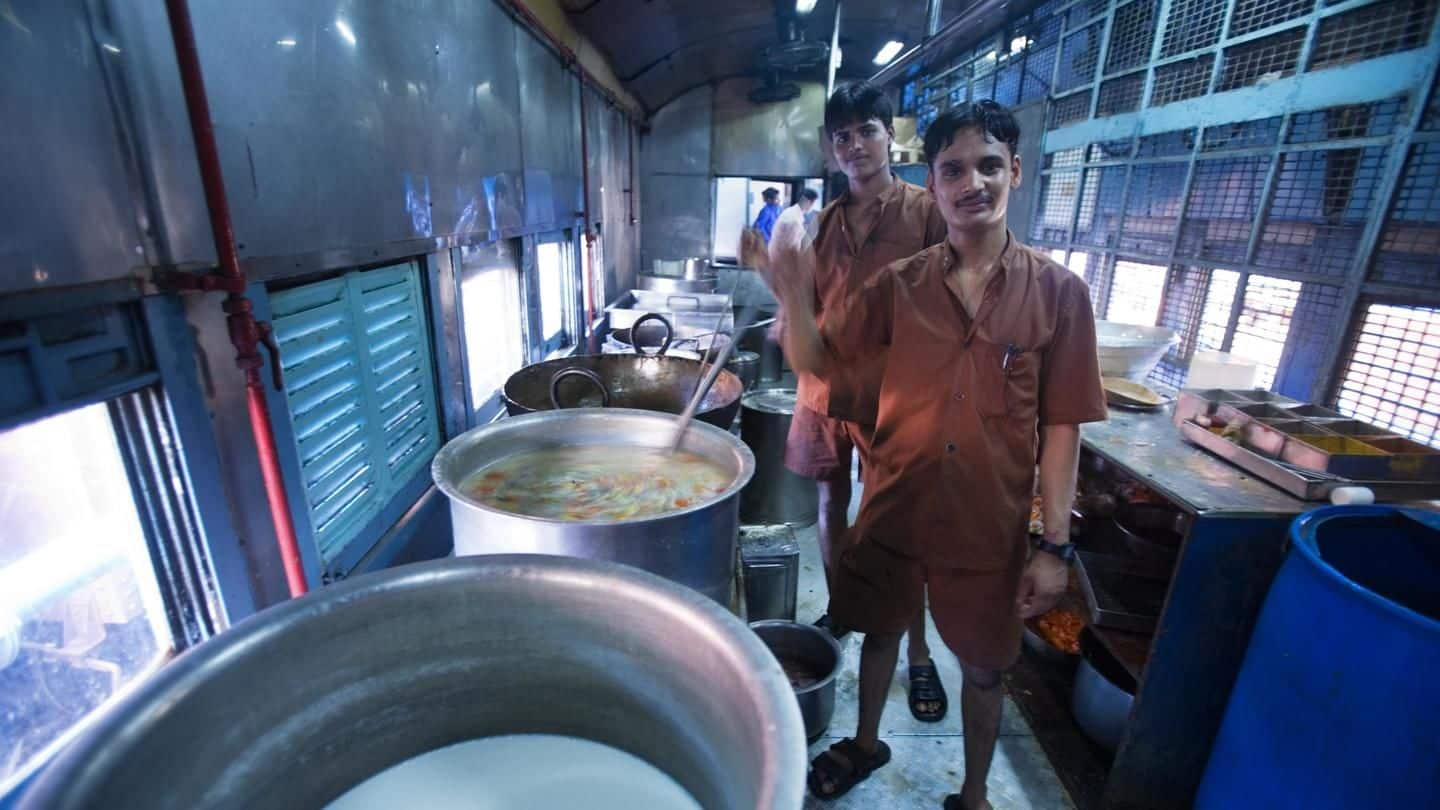
Unsure about food quality on trains? Live-stream preparations from base-kitchens!
What's the story
In a first of its kind initiative, the Indian Railway Catering and Tourism Corporation (IRCTC) now allows passengers to live-stream base kitchens to see how the food served on trains is actually prepared. A statement released by the national transporter suggested this move was initiated to increase transparency. Union Railways Minister Piyush Goyal suggested the idea at a review meeting recently.
Live-streaming
How will this new project work? Understanding the idea
High-definition CCTV cameras have been installed in kitchens to detect anomalies. Powered by artificial intelligence, these cameras notify individuals concerned about irregularity in hygiene standards of the kitchen, like chefs not wearing uniforms, or presence of rodents. The kitchen manager will be held responsible if the software generates a ticket. Passengers can access the live-streaming feature on IRCTC's website under the gallery section.
Details
Lohani inaugurated live-streaming feature, inspected Noida base kitchen
The live-streaming feature was inaugurated by Railway Board Chairman Ashwani Lohani on Wednesday. Earlier in the day, he paid a visit to Noida's base kitchen to inspect food preparation. This state-of-art central kitchen serves 10,000 meals a day for 17 Rajdhani, Shatabdi and Duronto trains. Lohani said a dedicated food testing lab was a unique feature of IRCTC's catering operations.
Do you know?
In the past, Railway catering has often come under fire
Food served by IRCTC doesn't have the best reputation. A 2017 CAG report revealed food served on trains was unfit for consumption, and unpurified water from taps was used. Not long ago, a viral video showed a tea-vendor using toilet water to make the beverage.
The steps
What has been done to improve food quality?
In September 2017, Piyush Goyal directed all zonal general managers to ensure that contractors supplying meals in trains categorically mention information regarding quantity in food packets. Not only this, the packets are supposed to carry the name of the supplier/contractor, date of packaging, weight, and a distinct vegetarian/non-vegetarian symbol. This move came after the CAG report criticizing IRCTC's 'Meals on Wheels.'